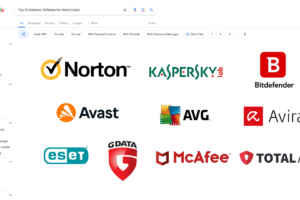As the digital world continues to expand, so too does the demand for skilled cybersecurity professionals. For individuals looking to break into this exciting and rewarding field, obtaining relevant certifications can be a valuable stepping stone. This article provides a comprehensive overview of popular cybersecurity certifications suitable for beginners, along with key considerations and career paths.
Understanding the Importance of Cybersecurity Certifications
- Credibility and recognition: Certifications validate your knowledge and skills, making you a more attractive candidate to employers.
- Career advancement: Certifications can open doors to higher-paying positions and career advancement opportunities.
- Skill development: Preparing for certifications can help you develop a strong foundation in cybersecurity concepts and best practices.
Essential Cybersecurity Concepts for Beginners
- Networking fundamentals: Understand basic networking concepts, including IP addresses, subnetting, and network protocols.
- Operating systems: Gain familiarity with common operating systems, such as Windows, Linux, and macOS.
- Security principles: Learn about fundamental security principles, including risk assessment, vulnerability management, and incident response.
- Cryptography: Understand the basics of cryptography, including encryption, hashing, and digital signatures.
- Ethical hacking: Develop a basic understanding of ethical hacking techniques and tools.
Popular Cybersecurity Certifications for Beginners
- CompTIA Security+: This entry-level certification covers a wide range of cybersecurity topics, including network security, risk management, and compliance.
- Certified Ethical Hacker (CEH): The CEH certification focuses on ethical hacking techniques and tools, providing a solid foundation for understanding how attackers operate.
- Certified Information Systems Security Professional (CISSP): The CISSP is a more advanced certification that requires significant experience and knowledge in cybersecurity. While it might be challenging for beginners, it can be a valuable goal to strive for.
- Certified Information Security Manager (CISM): The CISM focuses on the managerial aspects of cybersecurity, covering topics such as governance, risk management, and compliance.
- Certified Information Systems Auditor (CISA): The CISA certification is ideal for individuals interested in IT auditing and control.
Choosing the Right Certification
- Career goals: Consider your career aspirations and choose a certification that aligns with your desired path.
- Experience level: Evaluate your current experience and knowledge to determine the appropriate level of certification.
- Time commitment: Factor in the time and effort required to prepare for and obtain the certification.
Preparing for Cybersecurity Certifications
- Study materials: Utilize study guides, practice exams, and online resources to prepare for your chosen certification.
- Hands-on experience: Gain practical experience by working on cybersecurity projects or participating in online challenges.
- Networking: Connect with other cybersecurity professionals to share knowledge and learn from their experiences.
Building a Cybersecurity Career
- Internships and co-ops: Seek out internships or co-ops to gain practical experience in cybersecurity.
- Networking: Attend industry events and conferences to build relationships with professionals in the field.
- Online communities: Participate in online forums and communities to connect with other cybersecurity enthusiasts.
- Certifications as stepping stones: Use certifications as stepping stones to advance your career and pursue more specialized certifications.
Emerging Trends in Cybersecurity
- Cloud security: As cloud adoption continues to grow, there is a rising demand for cloud security professionals.
- IoT security: The increasing number of IoT devices creates new security challenges and opportunities.
- Artificial intelligence (AI) and machine learning (ML): AI and ML are being used to automate security tasks and detect threats.
- Cybersecurity analytics: The ability to analyze large datasets to identify security threats is becoming increasingly important.
By obtaining relevant cybersecurity certifications and developing the necessary skills, you can position yourself for a successful career in this rapidly growing field. Remember to stay updated on emerging trends and continuously strive to expand your knowledge and expertise.

















Add Comment